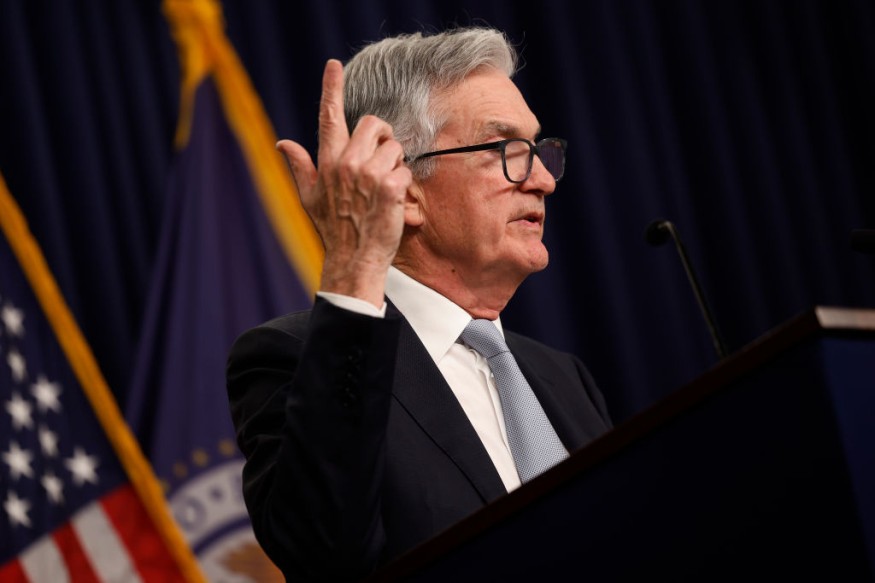Fed Orders Interest Rates Hike; How Will It Affect Inflation?

The Fed raised interest rates Wednesday and said that rates would have to go even higher to keep inflation from getting out of hand.
The central bank raised the key interest rate by 3/4 of a point. Since March, when it was close to zero, the rate has gone up by 3.75 percentage points.
According to NPR, this is the longest string of rate hikes in decades, but so far, it has not done much to lower inflation.
"Interest rates have risen at a whiplash-inducing speed, and we're not done yet," said Greg McBride, chief financial analyst at Bankrate.
"It's going to take some time for inflation to come down from these lofty levels, even once we do start to see some improvement," he added.
The Fed's preferred way to measure inflation showed that annual inflation in September was 6.2%, which was the same as the month before. The consumer price index shows that prices are going up at an even faster rate of 8.2% per year.
Fed Chairman Jerome Powell said keeping inflation from getting too high will almost certainly require much higher interest rates than he and his colleagues expected only two months ago.
"What I'm trying to do is make sure our message is clear," Powell told reporters Wednesday.
He claimed that before interest rates get to the point where they feel they are sufficiently restrictive, they still have some ground to cover.
Powell added that when policymakers consider the impact of increasing borrowing rates on the economy, the rate increases may shortly slow down.
"That time is coming, and it may come as soon as the next meeting or the one after that," Powell said.
Stocks Fell Dramatically While Bond Yields Soared
Stocks plunged significantly after a brief rally as bond yields increased. According to futures market participants, the fed funds rate is expected to grow from slightly over 5% before the meeting to 5.09% by May.
The "terminal rate" is the point at which the Fed is anticipated to stop rising interest rates. CNBC reported that the target range for the fed funds rate is currently between 3.75% and 4% because of the hike on Wednesday.
Jim Caron, head of macro strategies for global fixed income at Morgan Stanley Investment Management, said, "they're telling you they're willing to stop at a certain level and let that marinate in the market to bring inflation down."
According to Caron, the market now anticipates that the final rate will surpass the median objective set by the Fed.
Fed officials expected a September median of 4.6% or a range of 4.5% to 4.75%.
"Basically, what the market is saying is we think the Fed's going to a policy rate of 5%, maybe it's 5.25%," he said.
Are the Fed's Interest Rate Hikes Lowering Inflation?
There have been some indications that inflation may decline soon since the Fed's most recent meeting six weeks ago.
While still a substantial number, the monthly job growth in the U.S. has declined from 537,000 in July to 263,000 in September.
On the other hand, from July to September, private sector wages and salaries increased by 5.2% annually. Although it was lower than the previous quarter's rate of 5.7%, it is still very high.
Meanwhile, USA Today noted that energy and food prices increased in September from 4.9% to 5.1%.
Consumers' expectations for inflation in one and five years, frequently a reliable indicator of genuine price increases, increased last month after declining the month before.
The number of job opportunities increased from 10.3 million to 10.7 million in September after reaching record highs in the spring and summer.
Since companies will have to fight for a smaller pool of workers than before the pandemic, this could lead to more pay increases.
"We aren't going to declare victory until we really see convincing evidence, compelling evidence that inflation is coming down," Powell told reporters in June.
A strong currency reduces the cost of importing products, commodity prices go down, supply-chain bottlenecks are resolved, and shops provide discounts to move their overstock merchandise, according to experts. Thus, inflation will likely slow even if the Fed does not raise interest rates significantly.
On the other hand, Powell has repeatedly stated that the Fed must raise interest rates to alleviate public concern about inflation.
READ MORE: Dwyane Wade Scandal: Ex-Wife Slaps NBA Star With Harsh Accusation Over Trans Child's Gender Change
This article is owned by Latin Post.
Written by: Bert Hoover
WATCH: Federal Reserve raises interest rates by 75 basis points - From Yahoo Finance
Subscribe to Latin Post!
Sign up for our free newsletter for the Latest coverage!
© 2026 Latin Post. All rights reserved. Do not reproduce without permission.















